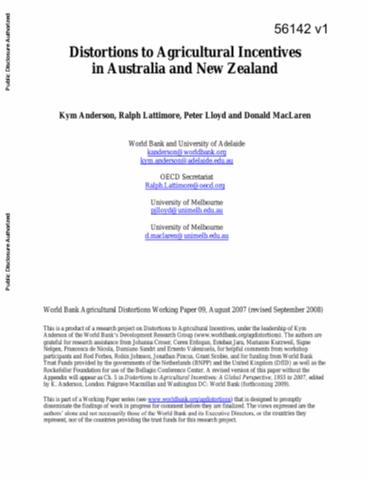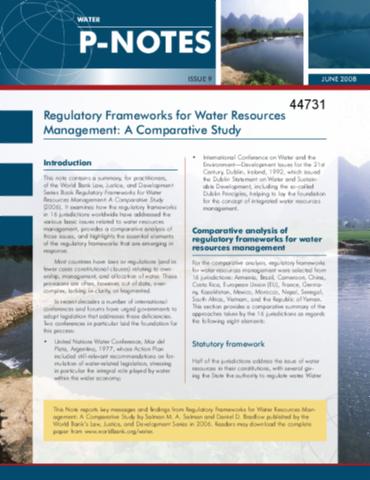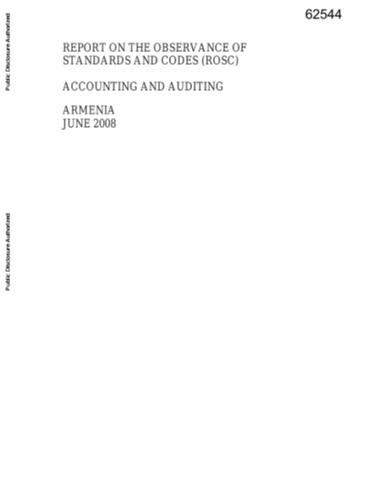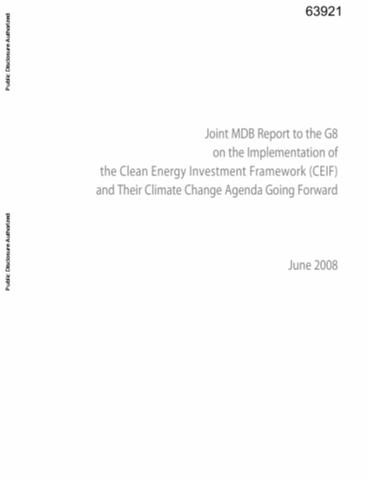The World Bank is a vital source of financial and technical assistance to developing countries around the world. We are not a bank in the ordinary sense but a unique partnership to reduce poverty and support development. The World Bank Group has two ambitious goals: End extreme poverty within a generation and boost shared prosperity.
- To end extreme poverty, the Bank's goal is to decrease the percentage of people living on less than $1.25 a day to no more than 3% by 2030.
- To promote shared prosperity, the goal is to promote income growth of the bottom 40% of the population in each country.
The World Bank Group comprises five institutions managed by their member countries.
The World Bank Group and Land: Working to protect the rights of existing land users and to help secure benefits for smallholder farmers
The World Bank (IBRD and IDA) interacts primarily with governments to increase agricultural productivity, strengthen land tenure policies and improve land governance. More than 90% of the World Bank’s agriculture portfolio focuses on the productivity and access to markets by small holder farmers. Ten percent of our projects focus on the governance of land tenure.
Similarly, investments by the International Finance Corporation (IFC), the World Bank Group’s private sector arm, including those in larger scale enterprises, overwhelmingly support smallholder farmers through improved access to finance, inputs and markets, and as direct suppliers. IFC invests in environmentally and socially sustainable private enterprises in all parts of the value chain (inputs such as irrigation and fertilizers, primary production, processing, transport and storage, traders, and risk management facilities including weather/crop insurance, warehouse financing, etc
For more information, visit the World Bank Group and land and food security (https://www.worldbank.org/en/topic/agriculture/brief/land-and-food-security1
Resources
Displaying 4771 - 4775 of 4906Distortions to Agricultural Incentives in Australia and New Zealand
In 1990, Australia and New Zealand were ranked around 25th and 37th in terms of Gross National Product (GNP) per capita, having been the highest-income countries in the world one hundred years earlier. Those countries relatively poor economic growth performance over that long period contrasts markedly with that of the past 15 years, when these two economies out-performed most other high-income countries. This difference in growth performance is due to major economic policy reforms during the past two to three decades, both at and behind the border.
Regulatory Frameworks for Water Resources Management : A Comparative Study
This note contains a summary, for practitioners, of the World Bank Law, Justice, and Development Series Book Regulatory Frameworks for Water Resources Management: a comparative study (2006). It examines how the regulatory frameworks in 16 jurisdictions worldwide have addressed the various basic issues related to water resources management, provides a comparative analysis of those issues, and highlights the essential elements of the regulatory frameworks that are emerging in response.
Accounting and Auditing
This report provides an assessment of accounting, financial reporting and auditing requirements and practices within the enterprise and financial sectors in Armenia. The report uses International Financial Reporting Standards (IFRS) formerly International Accounting Standards (IAS) and International Standards on Auditing (ISA) as benchmarks and draws on international experience and good practices in the field of accounting and audit regulation, including in European Union (EU) member states, to assess the quality of financial information and make policy recommendations.
Joint MDB Report to the G8 on the Implementation of the Clean Energy Investment Framework and Their Climate Change Agenda Going Forward
The 2005 Gleneagles G8 summit in July 2005 stimulated a concerted effort of the Multilateral Development Banks (MDBs) to broaden and accelerate programs on access to energy and climate change mitigation and adaptation through the Clean Energy Investment Framework (CEIF). At the Gleneagles summit, it was agreed that a report on the implementation of the CEIF would be prepared for the 2008 G8 (Group of Eight: Canada, France, Germany, Italy, Japan, Russia, the United Kingdom, and the United States) summit hosted by Japan.
Joint MDB Report to the G8 on the Implementation of the Clean Energy Investment Framework and Their Climate Change Agenda Going Forward
The 2005 Gleneagles G8 summit in July 2005 stimulated a concerted effort of the Multilateral Development Banks (MDBs) to broaden and accelerate programs on access to energy and climate change mitigation and adaptation through the Clean Energy Investment Framework (CEIF). At the Gleneagles summit, it was agreed that a report on the implementation of the CEIF would be prepared for the 2008 G8 (Group of Eight: Canada, France, Germany, Italy, Japan, Russia, the United Kingdom, and the United States) summit hosted by Japan.









